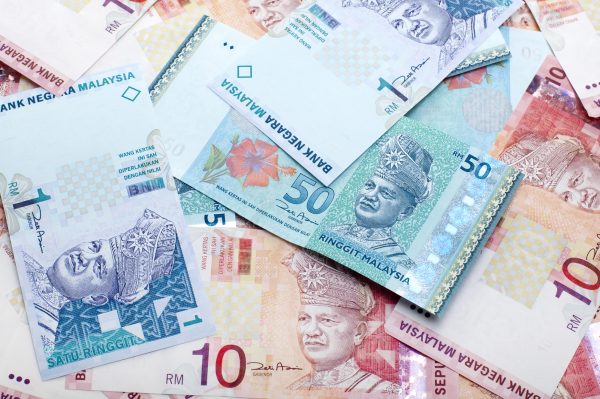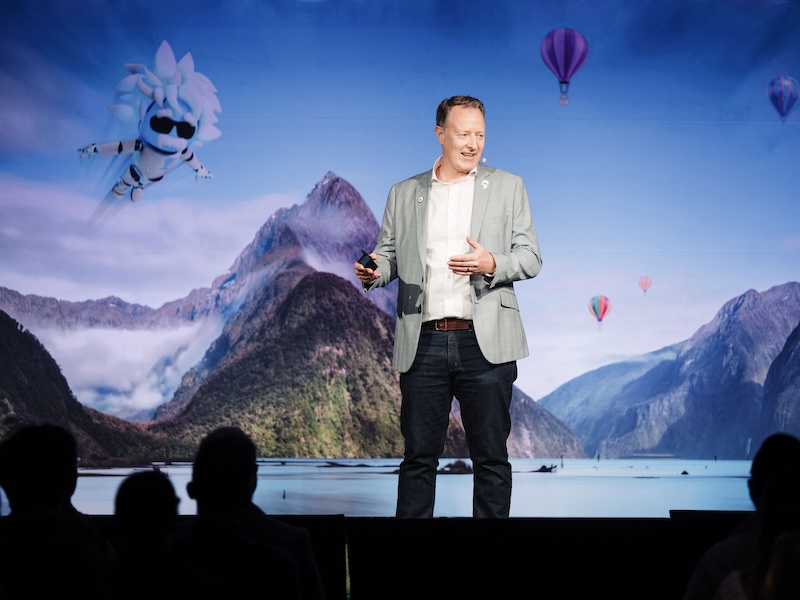• Tinubu confers GCON on Modi
• Ravi: Indian economic growth fuelled by right education, infrastructural devt, ICT
• Ohanaeze tasks Tinubu on release of ‘1.3m Nigerians in Indian prisons’
• Tinubu departs for G20 summit in Brazil to push reform agenda
Nigeria and India, yesterday, reaffirmed their commitment to a robust strategic partnership, pledging to strengthen ties in key areas, including economic development, defence, healthcare, and food security.
This was contained in a joint statement issued in Abuja at the conclusion of Indian Prime Minister Narendra Modi’s state visit to Nigeria at the invitation of President Bola Tinubu.
Shortly after the Indian Prime Minister received a formal welcome, including a 21-gun salute at the Presidential Villa, President Tinubu and Prime Minister Modi held a private meeting and later presided over expanded bilateral and political talks.
During their discussions, the two leaders agreed to greater collaboration in counterterrorism, maritime security, and intelligence sharing.
India hopes to enhance bilateral ties with Nigeria by leveraging its $27 billion investments and $7.9 billion trade relationship. Frequent high-level engagements, diaspora empowerment, and strategic initiatives in hydrocarbons, defence, and economic partnerships can boost trade.
Specifically, supporting Nigeria’s reforms and offering rupee-based trade options are expected to strengthen ties.
In 2022, according to the High Commission of India, Abuja, India emerged amongst the top five trading partners of Nigeria preceded only by China with $36.12 billion and the Netherlands with $16.07 billion. The Bilateral trade volume between Nigeria and India fell from $14.95 billion in 2021-22 to $11.8 billion in 2022-23.
This is mainly because of a decrease in the volume of oil purchased from Nigeria. The fall in the quantum of oil purchases is also attributable to the non-nomination of cargo from Nigerian National Petroleum Company Limited (NNPCL) which had signed a G2G term contract for supply with Indian Oil Corporation Limited (IOCL).
With growing threats in the Gulf of Guinea and the Indian Ocean, they also agreed on coordinated actions to safeguard maritime trade routes and combat piracy.
The two countries pledged to continue regular naval exercises and joint anti-piracy operations in the Gulf of Guinea to protect critical maritime routes.
“The leaders reiterated their unequivocal condemnation of terrorism in all its forms and manifestations, including the cross-border movement of terrorists, terror financing networks, and safe havens.
“They called for zero tolerance for terrorism and the expeditious finalisation and adoption of the Comprehensive Convention on International Terrorism within the UN framework, as well as the implementation of the UNGA and UNSC resolutions on countering terrorism and violent extremism.
“It was agreed to enhance cooperation in the area of counterterrorism,” the joint statement said.
Prime Minister Modi reiterated India’s readiness to support Nigeria’s defence modernisation efforts, highlighting India’s emergence as a trusted defence manufacturer.
The two leaders also emphasised the vibrant economic relationship between India and Nigeria, with India positioned as Nigeria’s largest trading partner and a significant contributor to its economy.
Nigeria commended the contributions of over 200 Indian companies operating in the country, which have generated substantial employment and investment opportunities.
Regarding bilateral trade expansion, both leaders directed their officials to finalise pending agreements, including the Economic Cooperation Agreement (ECA), Double Taxation Avoidance Agreement (DTAA), and Bilateral Investment Treaty (BIT), to boost trade and investment.
They noted with satisfaction “the fruition of some of the investments” agreed to by Indian companies during President Tinubu’s visit to India in September 2023 and committed to facilitating the early finalisation of the remaining investments.
On the sidelines of the G20 Leaders’ Summit held from September 9-10, 2023, in New Delhi, the Nigeria-India Presidential Roundtable and Business Conference took place, where Indian investors pledged over $14 billion across critical sectors of the Nigerian economy.
The investments targeted the industrialisation, energy, telecommunications, and defence sectors.
On infrastructure development, the joint statement arising from Prime Minister Modi’s state visit stated that India reaffirmed its commitment to supporting Nigeria’s development priorities through concessional lines of credit and technical expertise.
Regarding energy collaboration, Nigeria and India agreed on long-term contracts for crude oil and LNG supply, and technical support in pipeline transmission security, CNG conversion, and LPG bottling distribution.
The two leaders also discussed broader collaboration in food security, agriculture, health, education, and cultural exchanges.
The leaders agreed that food security remains a priority for developing countries, especially those with larger populations.
“Nigeria thanked India for providing the necessary concessions for the supply of rice in times of need.
“They agreed to enhance collaboration in agriculture, from agricultural machinery and high-yield seeds to sharing technical expertise, know-how, and technologies, and to identify ways of cooperation in these areas.
“The Indian side thanked Nigeria for supporting India’s resolution at the UN to declare 2023 as the International Year of Millets and agreed to increase collaboration in the area of millets,” the joint statement said.
In the healthcare sector, Nigeria and India pledged to deepen their collaboration, focusing on establishing hospitals and diagnostic centres and deploying innovative health management systems.
Both sides acknowledged the ongoing efforts by Indian hospitals operating in Nigeria and highlighted the vast potential for further collaboration to enhance healthcare delivery across the country.
The Indian government offered to share its CoWIN digital platform, an open-source health management infrastructure that has revolutionised vaccination campaigns and health data management in India.
This system is expected to support Nigeria’s healthcare system by improving the efficiency and accessibility of vaccination programmes and other health initiatives.
The Indian government also extended its commitment to supply high-quality generic pharmaceutical products to Nigeria at economical rates under the Pradhan Mantri Bhartiya Janaushadhi Pariyojana (PMBJP) scheme—a campaign launched by India’s Department of Pharmaceuticals to provide quality medicines at affordable prices to the masses.
This initiative aims to make essential medicines more affordable, particularly for vulnerable populations, and to support Nigerian public hospital procurement processes.
Nigeria and India reaffirmed their commitment to strengthening collaboration on education and cultural exchanges and fostering strong people-to-people contacts, building on longstanding historical ties and mutual aspirations.
India was acknowledged as a significant partner in Nigeria’s human resource development through various scholarship programmes, including the eVBAB scheme, which facilitates virtual learning opportunities.
Both sides agreed to work together to encourage more Nigerian students to leverage these scholarship programmes.
President Tinubu and Prime Minister Modi applauded the vibrant cultural and academic exchanges between the two nations, including visits by cultural troupes, participation in film and literary festivals, and other collaborative activities.
They underscored the importance of further widening these exchanges to promote mutual understanding and shared heritage.
The leaders recognised the role of tourism in enhancing people-to-people connections and emphasised the need to explore opportunities for promoting travel and cultural interaction between Nigeria and India.
On cooperation through international organisations, India commended Nigeria for its reciprocal support of non-permanent members of the UN Security Council for 2028-2029.
The two countries reiterated their joint commitment to UN Security Council reform and mutual support for permanent and non-permanent memberships. They also pledged cooperation on regional peace and security, particularly in West Africa.
Nigeria “took note” of India’s invitation to join the Global Biofuel Alliance and Global River Cities Alliance.
“As members of the International Solar Alliance (ISA), both sides agreed to intensify their cooperation in establishing solar parks and to work towards increasing the share of renewable energy in their energy portfolios,” the joint statement said.
ALSO, President Bola Tinubu, yesterday, conferred the national honour of the Grand Commander of the Order of the Niger (GCON) on Modi during the Nigeria-India bilateral meeting held at the State House, Abuja.
According to Tinubu, the award was a gesture of Nigeria’s appreciation and commitment to strengthening its partnership with India.
He noted that the invitation extended to Modi aimed to rekindle and redefine the existing ties between both nations.
Emphasising the significance of the high-level engagement, Tinubu stated, “Nigeria values its excellent relationship with India, and we are committed to deepening and broadening it for the mutual benefit of our two friendly countries.”
Praising Modi’s leadership, Tinubu said: “You represent a strong commitment to democratic values and norms. Winning three consecutive elections in a complex society is a remarkable feat we hold in high regard.
“I hereby confer on you, Prime Minister of India, Nigeria’s national honour, the Grand Commander of the Order of the Niger, to signify Nigeria’s appreciation and commitment to India as a partner,” Tinubu added.
In his acceptance remarks, Modi dedicated the honour to the 1.4 billion citizens of India and the deep friendship between India and Nigeria.
“This honour will continue to inspire us to take the India-Nigeria strategic partnership to new heights.
“The relations between India and Nigeria are based on mutual cooperation, understanding, and mutual respect.
“As two vibrant democracies and dynamic economies, we will continue to work for the benefit of our people,” Modi said.
Relatedly, India’s Secretary (Economic Relations) at the Ministry of External Affairs, Dammu Ravi, has attributed his country’s economic growth over the past decade to targeted initiatives in infrastructure, education, skills development, and Information and Communication Technology (ICT).
Speaking at a forum in Abuja, yesterday, Ravi, accompanied by the Indian High Commissioner to Nigeria, Shri G. Balasubramanian, highlighted the significant roles of small and medium enterprises and digital infrastructure in driving transparency and empowering ordinary citizens.
Ravi was part of the delegation that accompanied Indian Prime Minister Shri Narendra Modi on his visit to Nigeria. The visit commenced on Saturday evening, with Nigeria’s Minister of the Federal Capital Territory, Nyesom Wike, receiving Modi and presenting him with the ceremonial key to the city of Abuja.
Ravi revealed that India, with over 200 companies already established in Nigeria, plans to expand its current $27 billion investment portfolio in the country. This expansion, he noted, would focus on creating jobs, enhancing youth capacity through scholarships, and advancing digital education initiatives.
Highlighting the agricultural sector as a priority, Ravi called for collaboration between India and Nigeria to tackle food insecurity. He proposed joint efforts in mechanised farming, seed supply, and agricultural research to improve productivity.
This comes amid warnings from the World Food Programme (WFP) that an estimated 33.1 million Nigerians could face food insecurity next year due to economic hardships, climate change, and conflict in the North-East.
“There are tremendous opportunities for Indian entrepreneurs in Nigeria’s agricultural sector,” Ravi noted, adding that India is ready to support Nigeria with expertise in irrigation, hybrid seed development, and climate-resilient crops. “We are exploring ways to enhance cooperation in agriculture to help Nigeria achieve food security.”
In the health sector, Ravi disclosed nearly $4 billion of Indian investment in Nigeria’s pharmaceutical industry, with plans to open a 300-bed multi-specialty hospital in Abuja soon.
This facility, alongside existing eye care centres in Lagos and Abuja, will be staffed with expert doctors and equipped with modern technologies from India.
On education, Ravi emphasised India’s commitment to skill development under its Skill India initiative. “We are focused on equipping young people with industry-relevant skills alongside formal education,” he said, reaffirming India’s dedication to capacity building through the Indian Technical and Economic Cooperation (ITEC) programme.
ALSO, the apex Igbo socio-cultural group, Ohanaeze Ndigbo, urged Tinubu to capitalise on the visit of the Indian Prime to secure strategic investments in key sectors such as technology, energy, and railways.
The group also called for the release of over 1.3 million Nigerians reportedly imprisoned in India.
In a statement yesterday, Mazi Okechukwu Isiguzoro, Secretary of the Chidi Ibeh-led faction of Ohanaeze, expressed pride in joining President Tinubu to welcome Modi on his maiden visit to Nigeria, the first by an Indian Prime Minister in 17 years.
The group described the visit as a significant diplomatic milestone, presenting a unique opportunity to deepen economic ties between the two nations.
Ohanaeze noted that Nigeria and India have shared a strong diplomatic relationship since the establishment of India’s mission in Lagos in 1958.
According to the statement, Ohanaeze called on Tinubu to prioritise discussions with Modi on Indian investments in technology, infrastructure, and energy to revitalise Nigeria’s economy and create sustainable jobs.
On the diplomatic front, the group urged Tinubu to address the plight of over 1.3 million Nigerians reportedly detained in India, many of whom are said to be victims of harsh immigration policies.
Ohanaeze also advocated for Nigeria’s inclusion in the BRICS economic bloc, arguing that such a move would enhance financial stability and promote trade using the naira.
MEANWHILE, Tinubu yesterday departed Abuja for Rio de Janeiro to participate in the 19th G20 Leaders’ Summit at the invitation of Brazilian President Luiz Inácio Lula da Silva, who currently leads the group.
The summit, scheduled for today and tomorrow, will gather leaders from the world’s top 20 economies, including the European Union, the African Union, and various multilateral financial institutions.
This year’s theme, ‘Building a Just World and a Sustainable Planet,’ focuses on combating hunger and poverty, reforming global governance institutions, and promoting sustainable development and energy transition.
Nigeria, which has consistently called for reforms of global governance structures, is expected to reiterate its bid for a permanent seat on the United Nations Security Council during the summit.
On the sidelines, Tinubu is set to hold bilateral meetings to further advance Nigeria’s socio-economic reforms.
Accompanying the president are top government officials, including Foreign Affairs Minister Ambassador Yusuf Tuggar; Ministers Idi Mukhtar Maiha (Livestock Development) and Hannatu Musawa (Art, Tourism, Culture, and Creativity); Minister of State for Agriculture and Food Security, Dr Aliyu Sabi Abdullahi; and Director-General of the National Intelligence Agency, Ambassador Mohammed Mohammed.
President Tinubu is expected to return to Nigeria upon the conclusion of his engagements in Brazil.





















Discussion about this post